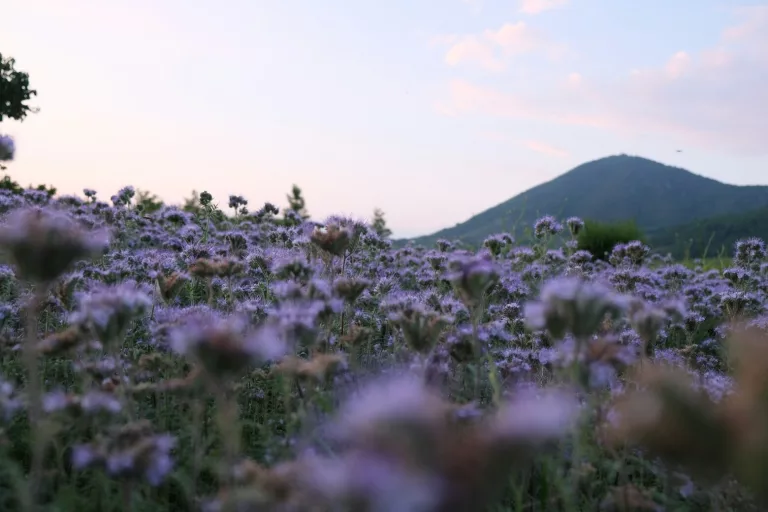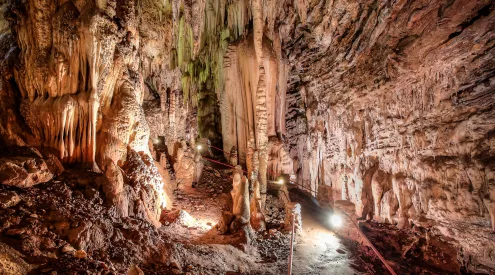The United Nations Educational, Scientific and Cultural Organization (UNESCO) has recently announced the addition of 11 new biosphere reserves to its global network, spanning 11 different countries.
ALSO SEE: Hottest days on Earth recorded this week
This expansion brings the total number of sites in the World Network of Biosphere Reserves to a total of 759, across 136 countries worldwide.
These newly designated areas represent a diverse range of ecosystems and cultural landscapes across the world:
Belgium & Netherlands: Kempen-Broek Transboundary Biosphere Reserve
The Kempen-Broek reserve straddles Belgium and the Netherlands, home to about 75,000 people. It’s renowned as one of the prime habitats for dragonflies in both countries. The reserve showcases how sustainable tourism and agriculture can coexist with nature conservation.

via Unesco
Colombia: Darién Norte Chocoano Biosphere Reserve
Colombia’s new reserve features a mix of tropical rainforests and marine areas. It serves as a haven for iconic species such as the Harpy Eagle and Poison Dart Frogs. The reserve also preserves important archaeological sites.
Dominican Republic: Madre de las Aguas Biosphere Reserve
This expansive reserve spans 11 provinces and 35 municipalities, home to nearly half a million people. It showcases four distinct ecosystems harboring 88 avian species. UNESCO notes that 20 of these species are endemic and 17 are under threat.
via Unesco
Gambia: Niumi Biosphere Reserve
The Niumi reserve stretches along the north bank of the Gambia River. It safeguards some of West Africa’s last pristine mangrove forests. The reserve also includes the Bao Bolong Wetland Reserve and various local forests.
Italy: Colli Euganei Biosphere Reserve
Located in the Veneto region, this reserve is defined by 81 volcanic hills. The region’s volcanic history and thermal waters add to its attraction as the largest thermal basin in Europe.

Via Unesco

Image: Unsplash mariagrazia viezzer
Italy and Slovenia: Julian Alps Transboundary Biosphere Reserve
This transboundary reserve merges previously designated Slovenian and Italian biosphere reserves. It features alpine mountains and karst plateaux dotted by waterfalls and pristine lakes. The area is home to Brown Bears, Lynxes, Otters, and Wild Cats.
Mongolia: Khar Us Lake Biosphere Reserve
Situated in western Mongolia, this reserve occupies a vast space within the Great Lake basin. It encompasses diverse ecosystems including aquatic realms, deserts, high mountain terrain, and steppe landscapes. The reserve is also home to diverse ethnic groups practicing sustainable animal husbandry.
Philippines: Apayaos Biosphere Reserve
The Apayaos reserve in the Province of Apayao is divided into two distinct regions with varying terrain. It serves as a vital watershed and a refuge for critically endangered species.
Republic of Korea: Changnyeong Biosphere Reserve

Via Unesco
Located in the Gyeongsangnam-do Province, this reserve forms a tapestry of biodiversity and cultural heritage. It encompasses habitats ranging from lush forests to wetlands and agricultural croplands. The reserve serves as a sanctuary for several species, including the endangered Crested Ibis.
Spain: Val d’Aran and Irati Biosphere Reserves
Spain adds two new reserves. Val d’Aran, in the Catalan Pyrenees, features diverse climatic and biological landscapes. Irati, in the western Pyrenees, boasts the second-largest Beech forest in Europe.
Follow us on social media for more travel news, inspiration, and guides. You can also tag us to be featured.
TikTok | Instagram | Facebook | Twitter















